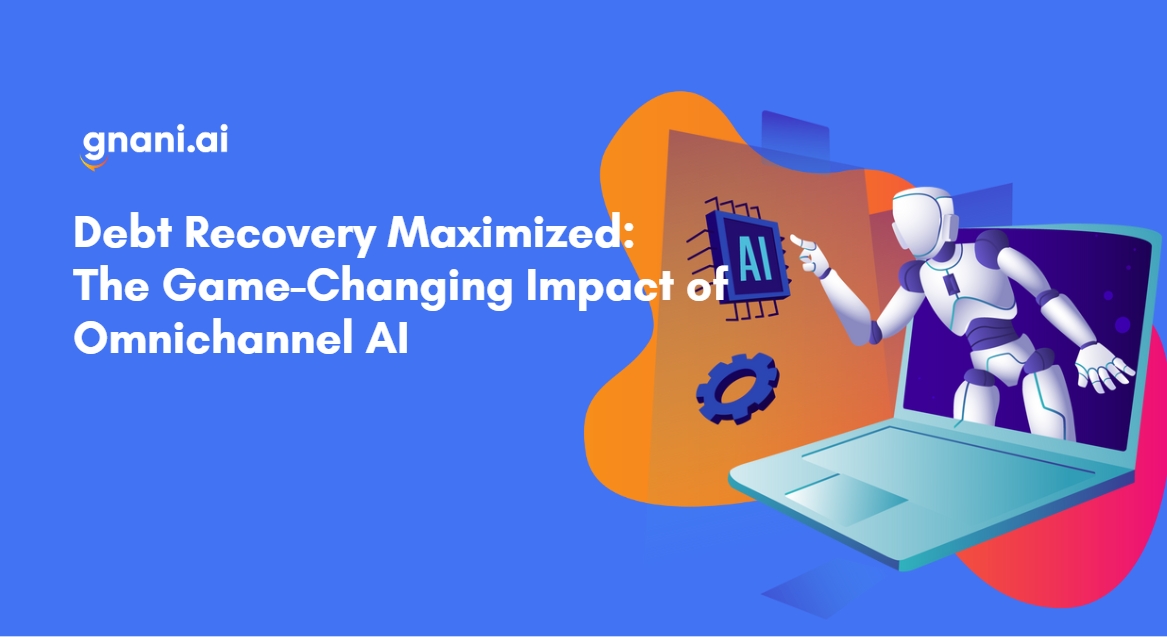Managing collectors is challenging for debt collection agencies. Yet, Experian research shows 52% of site visitors proceed to payment schedules, emphasizing the value of an omnichannel presence. V12data.com highlights that a strong omnichannel approach can boost revenue by 9.5% annually. This benefits debtors and collectors alike, while also addressing other agency issues.
Here are some common challenges related to the operation of debt collectors within an agency and how an omnichannel AI platform helps in debt recovery.
Collector Performance and Productivity
To successfully recover debts, debt collection companies rely on the performance and efficiency of their collectors. It can be difficult to guarantee dependable performance across all collectors, though. The overall results of the collecting process might be affected by variations in negotiation techniques, communication skills, and adherence to compliance requirements. This problem can be solved by putting in place performance management systems, offering ongoing coaching and training, and setting definite performance goals.
Compliance Adherence
Collectors need to adhere to a complex web of regulations and laws governing debt collection, such as the Fair Debt Collection Practices Act (FDCPA) and the Consumer Financial Protection Bureau (CFPB) rules. Ensuring that all collectors are well-versed in these regulations and consistently follow compliant practices is essential. Regular training, monitoring, and quality assurance measures can help mitigate compliance risks and maintain regulatory compliance.
Managing Collector Workloads
According to CNBC reports, the average American household owes $155,622 in debt from mortgages, credit cards, and other types of loans. Also, the total consumer debts have increased by 6.14% in January 2022 compared to the previous year. So, most often debt collectors have to handle a huge number of accounts at once, which can make it difficult for them to efficiently manage their responsibilities. Each collector should be given a manageable number of accounts, and effective workflow management systems and software tools can help to guarantee that each account gets the attention it needs and that collectors are working as productively as possible.
Emotional Toll on Collectors
Dealing with difficult debtor encounters, rejection, and sometimes confrontational situations can make debt collection a stressful job. In just the initial days of the pandemic, about 32% of the American population was rendered unemployed. Collectors are the ones who had to communicate about delinquency in payments even during such difficult times. This impacted the overall performance, motivation, and job satisfaction of the collectors. The emotional difficulties that collectors have can be alleviated by offering emotional support, stress management tools, and encouraging a healthy workplace culture.
Continuous Training and Professional Development
Techniques for collecting debt, rules for compliance, and business customs are all continually changing. Maintaining collectors’ knowledge of the most recent best practices, legislative changes, and communication techniques requires making sure they have access to continuing training and professional development opportunities. Collectors can develop their abilities and stay updated by regularly attending workshops, training sessions, and other industry resources.
Communication and Collaboration
For a successful debt collection operation, effective communication and teamwork between collectors and other team members are essential. Sharing crucial debtor knowledge, insights, or negotiation tactics inside the agency, however, may be hampered by organizational silos or communication barriers. Communication can be improved, and overall collection efficacy can be increased by fostering open channels of communication, utilizing collaborative tools, and encouraging teamwork.
Retaining Skilled Collectors
It might be difficult for debt collection companies to find and keep qualified collectors. Operations might be disrupted, and collection performance impacted by high turnover rates. Providing growth opportunities, recognizing, and rewarding top performers, offering competitive remuneration packages, and building a happy work atmosphere are all essential tactics for luring and keeping experienced collectors.
Effective management techniques, continual training, compliance monitoring, supportive work environments, and effective communication methods must all be used in combination to address these operational difficulties. The effectiveness of debt collection companies in managing their collectors and accomplishing their collection objectives can be attributed to routinely reviewing and addressing these difficulties.
The employment of artificial intelligence technology across numerous communication channels, such as phone calls, SMS, emails, and chatbots, together with real-time agent help, is referred to as omnichannel conversational AI in a debt collection firm. Here is a summary of what each part of a debt collecting firm can accomplish through these channels.
- Phone Calls: Automated voicebots use AI to understand and reply to debt-related queries, providing verification, reminders, account information, and settlement assistance through phone calls.
- SMS (Short Message Service): SMS can be used by conversational AI to communicate with debtors via text messaging. Automated payment reminders, balance updates, and customized messaging about their obligations are all available to debtors. Debtors can start discussions by SMS as well, and AI systems can reply with pertinent details or more support.
- Email Automation: AI automates debtor emails. It sends personalized reminders, notifications, and payment confirmations. It handles FAQs, provides debt information, and guides self-service options.
- Chatbots: AI chatbots can interact with debtors via messages or website chats. They understand text and reply quickly. They assist with debt verification, payment plans, FAQs, and debt settlement.
- Real-time Agent Assist: For live debtors, agent assistance tech aids human collectors. It evaluates conversations, provides real-time info, suggestions, and script coaching. CRM systems integrate with it for debtor and account data.
Conclusion
Gnani’s omnichannel AI platform provides debt collection companies with a game-changing solution for problem solving. AI-powered communication channels, such as chatbots, SMS, emails, and phone calls, facilitate debtor management and ensure compliance. Automated reminders and personalized service improve the debtor experience, increasing revenue by 9.5 percent and debt collection rates by 52 percent. Real-time agent assistance reduces stress and emotional expenses for human collectors while increasing productivity. With continual training and a positive work environment, talented people are more likely to stay with a company and experience lower turnover rates. Accepting the potential of artificial intelligence in debt collection improves operational effectiveness, revenue, and encourages favorable debtor experiences, which benefits both agencies and debtors.





